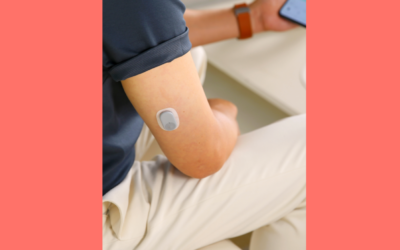By Steve Marriott on April 17, 2020
There is a pressing need to make the NHS Pathway for chronic knee conditions more efficient. The number of total knee replacements in the UK has risen significantly over the last 15 years. In 2016/17 the UK National Joint Registry recorded 108,713 knee replacements, an increase of 3.8% over the previous year. With the population of the UK becoming increasingly older and overweight , the corresponding rising demand for knee replacements is unsustainable, leading to considerable variation in waiting times across the UK with more than 86.7% of people waiting more than 18 weeks for elective care ,3. Wait times are expected to dramatically increase with coronavirus induced cancellations of elective cases.
The AposTherapy® treatment programme can postpone, and even prevent, knee replacement surgeries. During the initial year of AposTherapy® treatment, 87% of patients avoid surgery. As a result of the avoided surgeries one mid-size CCG achieved an estimated savings of £3,330 per patient. In addition to saving costs by reducing the number of knee replacement surgeries, AposTherapy® may save additional costs by reducing the amount of musculoskeletal, outpatient visits, radiology, injections and opioid use.
Cliff Bleustein, M.D., Global President and CEO of Apos Medical Assets, comments:
“There is a growing need for a clinically proven non-surgical knee pain treatment which can benefit CCGs economically while benefiting patients clinically. We recognise the need for greater market access in the UK and are excited to be working with Spirit Access in order to make AposTherapy® available to the population through more CCGs.”
“Working with Spirit Access, experts in patient pathway analysis, we have been able to use UK NHS data (hospital episode statistics) to explore key issues within the pathway— such as demand and waiting times—to hone our business model in the UK.”
Spirit Access is working with Apos Medical Assets on a risk-share model for CCGs and Trusts, based on the substantial collateral cost savings associated with improved management of long-term conditions such as osteoarthritis of the knee by decreasing the need for total knee replacement surgeries. The partnership’s model has already been successfully trialled with three CCGs, with plans for a national roll-out underway. AposTherapy provides an opportunity to integrate into the value-based models developing with the formation of Integrated Care Systems throughout the UK.
David Southern, M.D. of Spirit Access, adds:
“AposTherapy® is an incredibly exciting product that represents a real opportunity for the NHS to proactively tackle the most common chronic condition of knee pain in the UK, osteoarthritis of the knee. We are delighted to work with AposTherapy® to introduce pathway change and deliver cost savings to CCGs and Trusts while improving clinical outcomes for patients.”
About AposTherapy:
AposTherapy® is an innovative, CE and FDA cleared treatment for knee osteoarthritis and qualifies as a wellness device for use with other musculoskeletal conditions such as low back pain. AposTherapy® works on biomechanical and neuromuscular levels.
Using a footworn, patented medical device as part of a daily treatment programme, the treatment addresses the underlying causes of pain by shifting pressure away from painful areas and providing a long-lasting neuromuscular effect by reeducating muscles to a healthier walking pattern, even when not actively wearing the device.
By improving body mechanics and muscular coordination, AposTherapy® has shown in extensive clinical research that patients can achieve significant pain relief as well as an improvement to their daily function and quality of life.
1Parkes RJ, Palmer J, Wingham J, et alIs virtual clinic follow-up of hip and knee joint replacement acceptable to patients and clinicians? A sequential mixed methods evaluation BMJ Open Quality 2019;8:e000502. doi: 10.1136/bmjoq-2018-000502
2Carl Baker. House of Commons Library. Obesity Statistics. Briefing Paper Number 3336, 20 March 2018
Osteoarthritis: care and management Clinical Guideline [CG177] February 2014
3https://www.health.org.uk/sites/default/files/2019-11/nhs-performance-and-waiting-times-priorities-for-the-next-government-ge02-.pdf
Reference: ACC3128APR20


